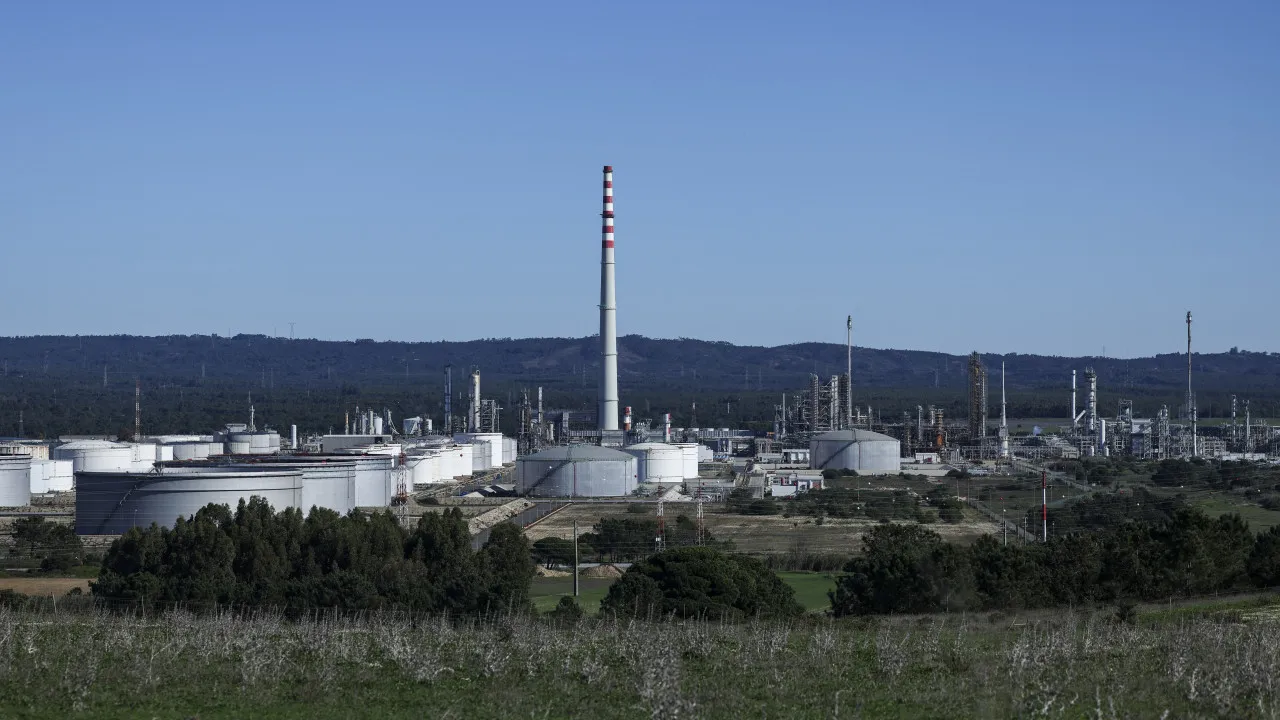
Galp has not only maintained its position as the most polluting company but has also increased its emissions by 11%, the association stated in a communication today.
Using data from the European Commission regarding emissions trading records associated with the European Emissions Trading Scheme (ETS), Zero’s ranking of the most polluting entities is mainly composed of the refining, energy, cement sectors, and TAP, which has risen to second place on the list (having been third last year).
Overall, there was a reduction in carbon dioxide (CO2) emissions, the primary greenhouse gas causing climate change. This was particularly due to the decrease in emissions from natural gas power plants for electricity production, notably at Tapada do Outeiro but also at Pego, owing to a greater emphasis on renewable energies.
The top ten polluters in the 2024 ranking are led by Petrogal – Refinaria de Sines, followed by TAP, Cimpor – Alhandra, and Cimpor – Souselas in third and fourth place respectively, with Secil – Outão in the middle of the table.
In sixth place is Elecgás – Central de Ciclo Combinado do Pego, followed by CMP, cement operations at Fábrica Maceira-Liz, and then EDP – Central Termoelétrica de Lares in eighth place. Lusical – Indústria Mineral-Calcinação de Calcários – Produção de cales não hidráulicas ranks ninth on the list of most polluting, and in 10th place is Turbogás, the combined cycle plant at Tapada do Outeiro.
Comparing with 2023, the most significant changes are the substantial reductions in emissions from thermal power plants using natural gas. Turbogás, Tapada do Outeiro, dropped from second place in the previous ranking to 10th, and Elecgás (Pego) from fourth to sixth.
Zero’s analysis highlights Petrogal’s Sines refinery for dominating the ranking for the fourth consecutive year.
The refining sector’s figures “show a very significant and growing impact of fossil fuels on our economy and polluting emissions; GALP remains a company focused on the exploration and production of fossil fuels with more than six and a half times its investment dedicated to them compared to investment in renewables,” Zero stated in the report.
It adds that between 2023 and 2024, emissions reached approximately 2.6 million tons of carbon dioxide, an 11% increase (about 270,000 tons), representing almost 5% of Portugal’s total net emissions in 2023 for comparison.
TAP experienced a slight emissions increase of one percent but climbed to second place due to an 80% reduction in emissions from Tapada do Outeiro. Emissions from the three natural gas power plants dropped from 2.7 million tons in 2023 to 1.1 million in 2024.
The total emissions from the ten most polluting units saw a reduction from 9.5 million in 2023 to 8.5 million in 2024, a decrease of 11%. The reduction between 2022 and 2023 had been 14%.
According to the list, besides the increases at the Sines refinery (up 11%) and TAP (1%), Cimpor Alhandra increased by 24%, Souselas by 3%, and Secil Outão by 4%.
The other five all reduced emissions. Elecgás (Pego) decreased by 47%, CMP Maceira by 1%, EDP by 9%, Lusical by 3%, and Turbogás by 80%.
The ETS includes major units in heavily polluting sectors such as thermal power plants, refining, cement, pulp and paper, glass, among others. In Portugal, 136 companies declared emissions in 2024 under the ETS.
For thermal power plants using fossil fuels, all emission permits must be purchased (in auctions), whereas in other sectors a large portion of permits is given free of charge and the remainder must be acquired.
In the near future, it seems that the Sines refinery, natural gas combined cycle plants, and the cement sector will continue to dominate the ranking of the largest carbon dioxide emitting business units, along with growth in the aviation sector.
Zero’s analysis is part of the LIFE EFFECT project, funded by the European Commission, aiming to promote broader civil society participation in decision-making and monitoring processes, ensuring that the ETS benefits the climate as well as people.




